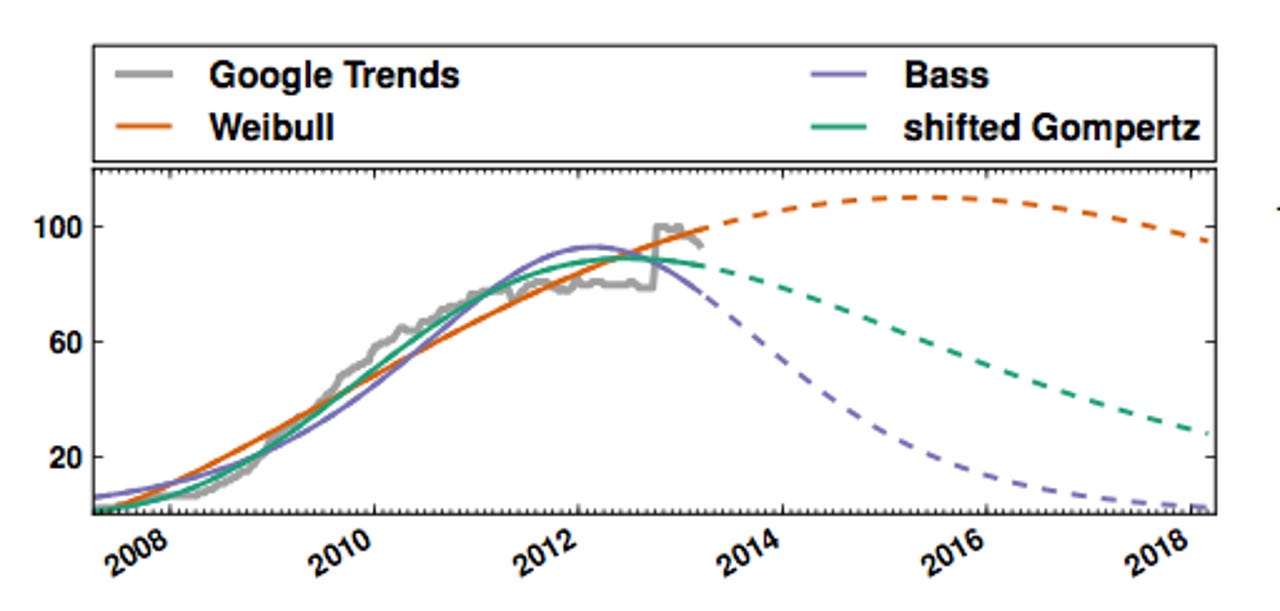Yes, Facebook's popularity will decline

Remember when Princeton researchers published a paper asserting that Facebook would lose 80 percent of its users by 2017, based on analyzing Google Trends data for Facebook searches? Everyone had a good laugh over that, not least of all Facebook, whose clever comeback used similar data to find that Princeton was in trouble.
Yet a second study (Strong Regularities in Growth and Decline of Popularity of Social Media Services) by researchers Christian Bauckhage and Kristian Kersting of Germany's noted Fraunhofer Institute has reached a similar conclusion. And they looked at 175 different Internet services — including Friendster, Myspace, Secondlife, Yelp and Zynga — across 45 different countries.
Their conclusion:
"...our analysis reveals that collective attention to social media grows and subsides in a highly regular and predictable manner. Regularities persist across regions, cultures, and topics and thus hint at general mechanisms that govern the adoption of web-based services."
In other words, many social internet services are like fads. And like most fads, interest tends to peak and then decline over time.
Peak Facebook?
The authors note that search terms do not represent absolute user interest — people may stop searching for Facebook because they have it bookmarked or use an app — but a large body of research has found Google Trends data is a good index of consumer interest.
They graphed their findings for several major services, including Facebook and Amazon. Here's the Facebook graph:

They used several different diffusion models to fit the data and found that the shifted-Gompertz model had the best fit across the data. That curve also gives a massive falloff in Facebook's relative interest.
But this isn't true of all Internet services. For example, Amazon's curve looks very different.
As the authors note:
Due to the simplicity of the diffusion models considered here and because of their apparent empirical validity and theoretical plausibility, the results reported in this paper therefore provide a new baseline for research on the mechanisms and long-term dynamics of collective attention on the web.
The Storage Bits take: To be clear, the research doesn't predict imminent doom for Facebook.
Featured
But it does suggest that the Facebook fad faces user interest declines just as other services before it have.
Interest has already declined among younger teenagers — one reason Facebook paid $19B for WhatsApp — and Facebook has more challenges ahead. Concerns over information security, selling of information, and constant UI changes have soured many people I know.
But given the "social" nature of social services, is it so surprising that they are more like fads than utilities? Facebook will struggle to stay relevant to users' lives.
Comments welcome, as always. How has your use of Facebook changed in the last year?